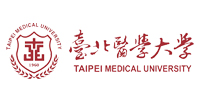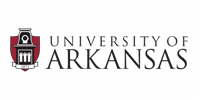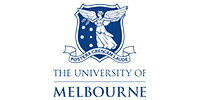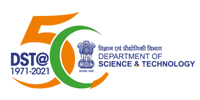BSc (Hons) Food Technology
Eligibility : 10+2 with at least one science subject & minimum 55% marks
- Duration : 4 years
- Admission Criteria : CUET/ NEET/JEE/ SAT or Shoolini University's multiple choice entrance test, and faculty interaction
BSc (Hons) Food Tech at Shoolini University combines techniques and activities of preserving, processing and manufacturing foodstuff. A branch of science and engineering, this is a popular course because of the opportunities available in research and industry.
Scholars of BSc (Hons) Food Tech are encouraged to develop their research and practical abilities with the help of state-of-the-art infrastructure and recognised faculty.
Shoolini University BSc (Hons) Food Tech is NAAC accredited and has UGC certification. Faculty members of the course include alumni of global universities like Oxford, NIH, NCI, Johns Hopkins Medical School, as well as top universities of India like IISc, JNU, DU and ZSI. Students often get a chance to work closely on live research projects with their faculty members.
VISION
The Food Technology program aims to be a trailblazer in education, research, and innovation, producing graduates who are well-equipped to lead the future of the food industry with excellence and integrity
MISSION
MISSION-1: Educating students from a diverse background in the fundamental skills, knowledge and practice of Food Technology to prepare them for a top food industry and continue their progression in Food Technology or related disciplines
MISSION-2: To establish connections with top leading institutes for research and entrepreneurship development among students
MISSION-3: Facilitate employment and networking possibilities for students by connecting them with industry leaders, alumni, and international networks to help them progress in their career
MISSION-4: Providing research and professional services to streamline and optimize processes which contribute to the enhancement of the quality of life
MISSION-5: To act as a bridge for linking research, academics, industry, and society for sustainable development
PROGRAM EDUCATIONAL OBJECTIVE
- PEO-1: To develop the ability to apply the knowledge of food chemistry, food science and technology, microbiology, sensory evaluation to the development, processing, and preservation of safe, nutritious, and high-quality food products
- PEO-2: To develop the capability to apply latest technological tools and novel techniques in food processing with respect to social and global framework
- PEO-3: To develop the ability in students to gain knowledge related to food, food industries, field and skills which are necessary in life for the holistic development for meeting their professional needs in varying environment and changing contexts
- PEO-4: To develop the capability to utilize advanced instruments and technologies to process and analyze food products and to solve food safety problems
- PEO-5: To nurture competent professionals instilled with leadership traits and ethical duties
PROGRAM OUTCOME OR PROGRAM SPECIFIC OUTCOME
- PO-1: Disciplinary knowledge: Students are able to demonstrate comprehensive knowledge and understanding of one or more disciplines such as chemistry, biochemistry, mathematics, statistics, microbiology, engineering, management; regulations with support of different allied subjects of Life Science; Physical Science
- PO-2: Communication: Development of students’ communication skills is planned through a writing seminar (English) which is compulsory for each student. Besides that the students do various assignments such as sprint that enable them to develop skills in public speaking writing and effective’s interpersonal skills. Presentations in each paper enhances their confidence, ability to express themselves, presentation skills
- PO-3: Research-related skills: Students develop a scientific temper and a sense of enquiry through various food technology papers. They have capabilities in asking relevant questions relating to current issues and themes and state hypothesis and rationale for inquiry. Students are capable of using appropriate research methodology especially for understanding safety issues in Food Technology and reporting the results in different formats
- PO-4: Cooperation/Teamwork: Students are capable of effective working in diverse contexts and teams in class room’s laboratories, student societies, industry and the community. They have basic management skills for independently organizing events, resource mobilization and leading community-based projects, initiatives, cultural shows
- PO-5: Self-directed learning: Students are capable of working independently and are able to apply the concepts of Food Technology in an original; creative manner to solve and manage real life issues for the customers and industry. Students develop customized products as per the requirements of customers e.g. Sugar free jams, sweets for diabetics, gluten free products for celiac etc.
- PO-6: Multicultural competence: Students are confident of working in diverse sociocultural contexts. They are able to effectively engage with multicultural groups and teams. They have sensitivities of cross cultural and ethnic diversity which they can apply to different settings. College through a student and faculty exchange program with foreign university helps them to acquire multicultural competency. They are competent to seek higher education in foreign universities.
- PO-7: Moral and ethical awareness/reasoning: Student has awareness of ethical conduct in different situations (academic and personal). They have skills in understanding and avoiding unethical behavior such as misrepresentation, plagiarism and environmental misuse and violence. They are formally taught ethics of research and human interventions
- PO-8: Leadership enthusiasm/qualities: Students have leadership qualities in organizing teams and their mobilization for effective problem solving in different Food Technology aspects. Students apply creative leadership for the realization of various goals. As a leader, they are trained to have greater customer sensitivity and connect. They can organize food courts and design business plans
- PO-9: Lifelong erudition: Students acquire ability to gain knowledge and skills which are necessary in life for the holistic development for meeting their professional and personal needs in varying environment and changing contexts
- PO-10: Modern tool usage: Create, select, and apply appropriate techniques, resources, and modern engineering and IT tools including prediction and modelling, AI to complex engineering activities with an understanding of the limitations
- PSO-1: Function in various research domains of food technology using modern tools and techniques and processes of the food processing sector
- PSO-2: Able to apply the knowledge & skills gained in the field of food science, food processing, food microbiology, food chemistry to solve industrial problems
- PSO-3: Able to apply technical knowledge and skills gained in food sector to solve problems of farmers, small scale industries and large industries
- PSO-4: Students will be able to understand the concept of physiological characteristics of fruits and vegetables and biotechnology
BSc (Hons) Food Technology Career Opportunities
- Dietician
- Production Manager
- Food Technologist
- Lab Supervisor
- Packaging
- Teaching
- Brewer
- Purchase Manger
- Retail Procurist
|
|
|
|





Program Details
Top Faculty
Student Voices
Top Campus Recruiters
Some of the major companies that visit our campus and hire our graduates are:
Frequently Asked Questions
Who teaches BSc (Hons) Food Technology at Shoolini University?
Shoolini University has experienced research-oriented postdoc faculty from top national and international institutions such as Oxford, National Cancer Institute (USA), NIH (USA), and IISc Bangalore.
What are the future opportunities after completing a BSc (Hons) in Food Technology from Shoolini University?
The degree prepares graduates for jobs in varied domains such as restaurants, catering establishments, hospitals, food processing companies, etc. Students avail international exchange opportunities at campuses like Stanford University (USA) and Gachon University (South Korea).
How do you expose students to industry experience?
Our learning programs are based on industrial applications. Industrial training is a part of the curriculum for exposure to the working environment and hands-on training for food processing technologies and maintenance of plants and machinery. Our university arranges industrial visits for real-life working scenarios. They gain advanced and industry-relevant skills that help them further their career goals.
Is practical training a part of BSc (Hons) Food Technology?
We provide competitive internships, training and placement support with various global universities and food industries. Our students engage in collaborative learning facilitated by group projects and file patents under the guidance of our faculty members. We also follow the one-student one-patent norm.
What are the placement opportunities available for students who have completed BSc (Hons) in Food Technology at Shoolini University?
Our fully functional Placement Cell has tie-ups with various industry giants including Cremica, Verka, Abbott and Nestle who visit the Shoolini campus during Placement Week for on-the-spot Placements. Our 'Mission 130' aims at 100 per cent employability with 30 per cent in top companies.
Do you have a strong alumni network?
Yes. Shoolini Alumni Association organises alumni meet up every year where alumni share their knowledge and expertise with students. We also invite notable alumni for expert talks.
Latest Blogs
Explore the latest insights and updates in our newest Shoolini University blogs!
Still have Queries? Contact Us
Please fill in the form and an expert from the admissions office will call you in the next 4 working hours.





































